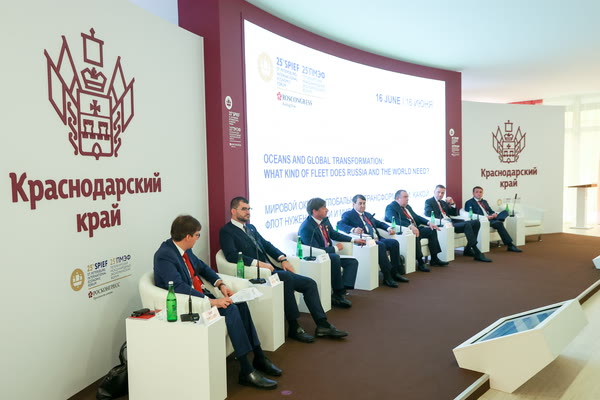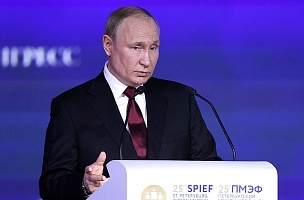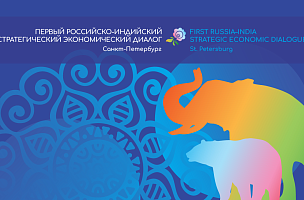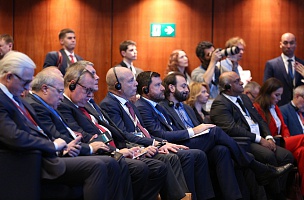Key conclusions
Achieving technological sovereignty
“The challenge we are facing today is how do we achieve technological sovereignty [in shipbuilding — Ed.]. Everything that we called localization, everything that we tried to implement by attracting foreign investors, everything we did to accelerate our pace on the way to some kind of technological parity. Today, we probably no longer should rely on our partners, although many of them, after they left slamming the door behind them, are now knocking on back doors and windows, asking: ‘Can we stand nearby?’” Alexey Rakhmanov, Chairman of the Board, Chief Executive Officer, United Shipbuilding Corporation.
“Previously, we relied on the requirements of Decree 719, but by now it is already outdated and needs to be changed. The decree suggested a gradual replacement, whereas currently almost everything needs to be replaced, and it has to be done immediately,” Viktor Evtukhov, State Secretary – Deputy Minister of Industry and Trade of the Russian Federation.
PROBLEMS
Fleet shortage
“Many jurisdictions have banned their vessel owners from entering Russian ports. That has abruptly caused a fleet shortage. <...> This is part of the political game, no one can impose sanctions on direct grain supplies, but nevertheless, they are trying to do us harm in every possible way. We are doing our best with the fleet available to us,” Eduard Zernin, Chairman of the Board, Major Shareholder, BIO-TON Agri Corp., Chairman of the Executive Board, RUSGRAIN UNION (The Russian Union of Grain Exporters).
“We have two important issues at hand. The first is that now there are practically no <…> refrigerated transport vessels available to the fishing fleet. <...> And then there are research vessels. We are currently building two at the USC shipyards, but the entire programme includes seven ships. This is what we need to develop and what we need to build,” Ilya Shestakov, Head, Federal Agency for Fisheries (Rosrybolovstvo).
“We are now catching up in shipbuilding, I am talking about civil shipbuilding. <...> We thought that Germany would build something, that Czech Republic would build something, someone else would build something. We were not engaged in civil engineering or shipbuilding. I believe we need to turn to that now. If we do not do this, we are going to lose,” Igor Levitin, Aide to the President of the Russian Federation.
Support for the industry
“Since 2014, significant support measures have been implemented in the industry, including more than RUB 260 billion in subsidies, R&D, and much more. The industry will undoubtedly need more support, but the time has come when every rouble must be accounted for. It is impossible to constantly carry out financial rehabilitation of the shipyards and react to their money requests,” Viktor Evtukhov, State Secretary – Deputy Minister of Industry and Trade of the Russian Federation.
“We are approaching <…> the nationalization of the fleets. We realize that the concept of free world trade will be losing its relevance,” Alexey Rakhmanov, Chairman of the Board, Chief Executive Officer, United Shipbuilding Corporation.
SOLUTIONS
Shipbuilding development
“On the one hand, we need to gain a foothold in those segments that we have already developed: mixed transport vessels, service and auxiliary vessels, technical fleet vessels, ferries – both large and for regional transportation. But at the same time, if we look at competencies that we have begun to develop recently, we are still extremely dependent on imports. These are fishing vessels, offshore machinery, and so on,” Viktor Evtukhov, State Secretary – Deputy Minister of Industry and Trade of the Russian Federation.
“The first core condition for successful development is a unified industrial policy in various economic areas, a unified scientific and technological policy, with financial support measures coming at the very end of this process,” Kirill Lipa, General Director, Transmashholding.
Prospects of river routes
“We have around 50,000 river routes, as many as federal roads. But we carry only 3% of the total cargo volume by rivers. <...> I believe that the usage of river routes is extremely promising both in the cargo transportation, and in the passenger transit too. Right now, tourist river trips are in high demand,” Igor Levitin, Aide to the President of the Russian Federation.
“I would like to emphasize the need for the priority development of river corridors, when we talk about the transportation in the direction of St. Petersburg and Saratov Region, in the direction of Moscow; we are facing the problems that exist today in the Nizhny Novgorod crossing,” Ivan Demchenko, Shareholder, Novostal-M.
For more information, visit the ROSCONGRESS.ORG Information and Analytical System www.roscongress.org






